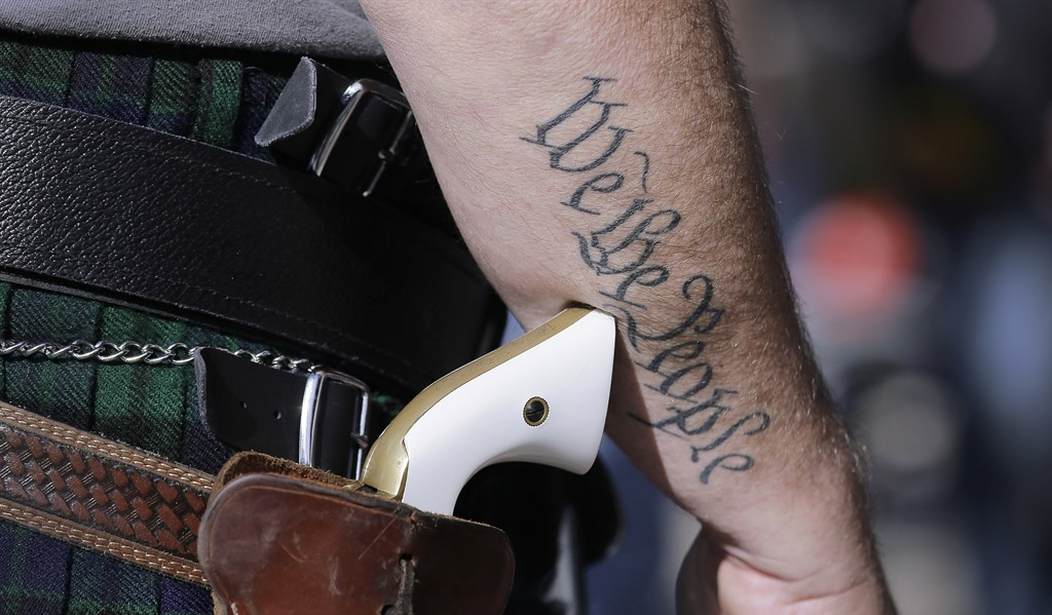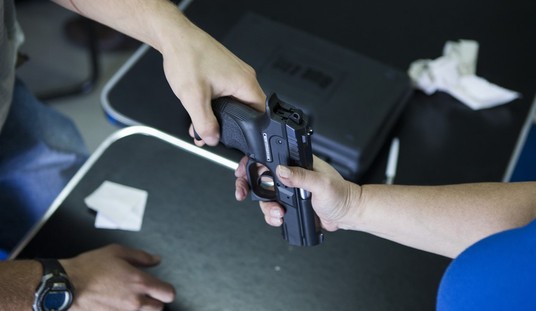Every day it seems like there’s another report of a town or county declaring themselves a Second Amendment Sanctuary, in addition to the dozen-or-so states that are considering statewide declarations in opposition to new federal gun control laws. Supporters of the measures say that they’re a way to ensure the Second Amendment rights of citizens in the face of a new push to restrict the right to keep and bear arms, while those opposed to the measure claim they’re either dangerous, meaningless, or both.
Gun safety advocates say it is an alarming trend for something that holds little weight.
“They can really only be considered declarations or kind of a symbolic statement. They have no legal effect,” Geoff Bickford with the Maine Gun Safety Coalition said.
The recent proposals come as the pandemic has spurred record-breaking gun sales in Maine and across the country. Still he says efforts to reinforce protections for gun owners does not make total sense.
“It’s a bit curious here in Maine specifically because we have some of the most lax gun laws in the entire country,” Bickford said.
What gun control activists call “lax,” Second Amendment supporters call “good.” It’s true that Maine doesn’t have a lot of gun control laws on the books, and it’s also true that many residents want to keep it that way. After all, not only does the state have pretty good gun laws, it also has one of the lowest violent crime rates in the nation.
Besides, if as Bickford claims these resolutions have no legal effect, why does he consider it an “alarming trend”? How can something be both alarming and of no importance?
The fact of the matter is that Second Amendment Sanctuary resolutions are important, both as a symbolic way of showing opposition to new gun control laws and as a practical matter, and Bickford knows it. Many Second Amendment Sanctuary resolutions pledge, for instance, that no local funds will be used to enforce new gun control laws. The resolutions don’t attempt to nullify those new laws, but instead recognize the power and authority of local governments to prioritize their crime fighting strategies.
The Supreme Court ruled back in the 1990s that state and local law enforcement are under no obligation to enforce federal laws or cooperate with federal law enforcement agencies. In Printz vs. United States, SCOTUS opined that, while local police can’t interfere with the feds, they don’t have to lift a finger to help either. The Left has taken advantage of the Printz decision by passing a number of “sanctuary city” policies when it comes to enforcement of federal immigration law, but now that the Right is doing the same thing when it comes to federal gun control legislation, all of a sudden they have objections.
In Fort Fairfield, Maine, town councilor and gun shop owner Bob Kilcollins says he’s received dozens of calls and emails in support of his successful push to declare the town a Second Amendment Sanctuary, and he doesn’t believe the town’s measure is nothing more than words on a piece of paper.
“The aftermath was good,” Kilcollins said, adding that some of the callers were negative about the issue. “Even [State Rep.] Dave McCrea called and I could tell he had some heat under his collar. I said, ‘Dave, I accept your position,’ but all we are doing is upholding our right not to be disarmed in Fort Fairfield.”
McCrea, D-Fort Fairfield, said Friday that there are different interpretations of what it means to be a Second Amendment sanctuary town. After talking to Town Council members and the town manager, McCrea said Fort Fairfield has gone on the record with their objection to restrictive gun laws.
Still, some restrictions are necessary, McCrea said, giving the example of schools.
“We have gun laws that keep firearms off school grounds, no exceptions,” he said. “The Second Amendment has been nudged for the good of everyone.”
Since then, Kilcollins has sent copies of the town resolution to several Aroostook County towns, at their request, as well as many towns and cities around the nation.
“I tell them where we’ve been with it, how we adjusted it, how we gave it to attorneys and the local town attorney,” Kilcollins said. “I am telling municipalities, trust is a big issue and we did a lot of footwork for about six months … and now it’s [the resolution] as good as a $100 bill.”
As the author of the town’s resolution, Kilcollins said it is important to him to educate other towns on why becoming a safe haven for gun owners is important.
“The Second Amendment is more than just words,” he said. “This has really opened the eyes of a lot of people and it brought a lot of people together and I’m pretty proud to be a part of it.”
To be clear; Second Amendment Sanctuary resolutions are a defensive move. It’s better to defeat bad bills before they become bad laws, but when infringements to our right to keep and bear arms are put on the books localities and even states still possess the power to say they won’t be a part of any enforcement effort. From the objections of abolitionists to the Fugitive Slave Act in the 1850s to the growing number of states that are legalizing marijuana despite federal prohibitions, there’s a long and storied history in this country of state and local resistance to unpopular and unconstitutional federal mandates, and Second Amendment Sanctuaries fit squarely within that tradition. Ultimately, that’s why gun control activists like Geoff Bickford are so alarmed by the movement; they know that these resolutions are far more than mere symbolism.








